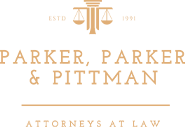If you’ve been charged with DWI in North Carolina , and your driver’s license has been suspended, it is imperative that you have an attorney fighting for your rights as quickly as possible. Here’s an explanation of how and why your license has been suspended, and what Parker, Parker & Pittman can do to get you back on the road.
North Carolina’s statute G.S. 20‑16.5 authorizes what are commonly referred to as civil license revocations . When certain conditions are met during a DWI or impaired-driving stop, a magistrate can temporarily suspend a driver’s license independent of any criminal proceedings. Here’s how it works—and what it means for you.
Four Criteria Trigger License Revocation
Under G.S. 20‑16.5, a driver’s license can be revoked if all four of the following apply:
- A law enforcement officer reasonably believes the driver committed an implied consent offense (i.e. Driving While Impaired).
- The driver is formally charged with that offense.
- Both the officer and a certified chemical analyst comply with statutes (G.S. 20‑16.2 and 20‑139.1) governing the administration of chemical tests.
- One of the following conditions is met during testing:
- The driver willfully refuses to take the test.
- The driver’s blood alcohol concentration (BAC) is 0.08% or higher after driving.
- The driver’s BAC is 0.04% or higher (or any amount) after operating a commercial motor vehicle.
- The driver’s BAC is any amount above 0.00% if the driver is under 21 years of age.
How Long the Revocation Lasts
- Minimum Suspension: 30 days.
- Reinstatement Fee: A $100 payment must be made before the license is returned.
- Multiple Pending Offenses: If the driver has other pending offenses of DWI, the revocation will remain in effect until all charges are fully resolved.
Surrendering the License
Once the magistrate issues a revocation, the driver must surrender their NC license, permit, out-of-state equivalent, or any limited driving privilege issued by a NC court. Law enforcement can be instructed to physically seize the license.
Contesting the Revocation
- Hearing Request: The driver can challenge the revocation by submitting a written request either at their initial court appearance or within 10 days thereafter.
- Possible Venue: The hearing may be before a magistrate or district court judge.
- Timeframe: If held before a magistrate, it must occur within three working days; if before a district judge, within five working days.
- License Status: The driver remains revoked until the hearing concludes.
Timing & Evidence Limitations
- Blood Test Delays: If BAC results come from blood rather than breath tests, they may not be available at the initial appearance. In such cases, the officer can file the revocation report after results arrive.
- Non-Alcohol Offenses: For drug or other substance-based charges, the same “willful refusal” standard applies—but alcohol concentration levels don’t, since BAC isn’t relevant.
Limited Driving Privileges During Revocation
- A limited driving privilege may be granted by a district court judge if the following apply:
- The driver held a valid license or one expired less than a year at the time of the offense.
- No other unresolved impaired-driving charges exist, except for the current one.
- The revocation has lasted at least 10 days.
- The driver has completed a substance abuse assessment and enrolled in any recommended treatment.
For indefinite revocations tied to multiple pending implied-consent offenses, a limited privilege may only be available after 30 days, and then only to address undue hardship—again, with the same licensing and treatment requirements.
If you’ve been charged with DWI, you need an experienced attorney to begin work on your case immediately, so that you can legally get back on the road quickly. Parker, Parker & Pittman can help you obtain a Limited Driving Privilege while preparing your defense to your DWI charge. Contact us today.
Reference:
“The License Revocation that Immediately Follows Arrest for DWI.” Shea Denning. North Carolina Criminal Law – A UNC School of Government Blog. https://nccriminallaw.sog.unc.edu/the-license-revocation-that-immediately-follows-arrest-for-dwi/ August 22, 2018. Last accessed October 21, 2025.



